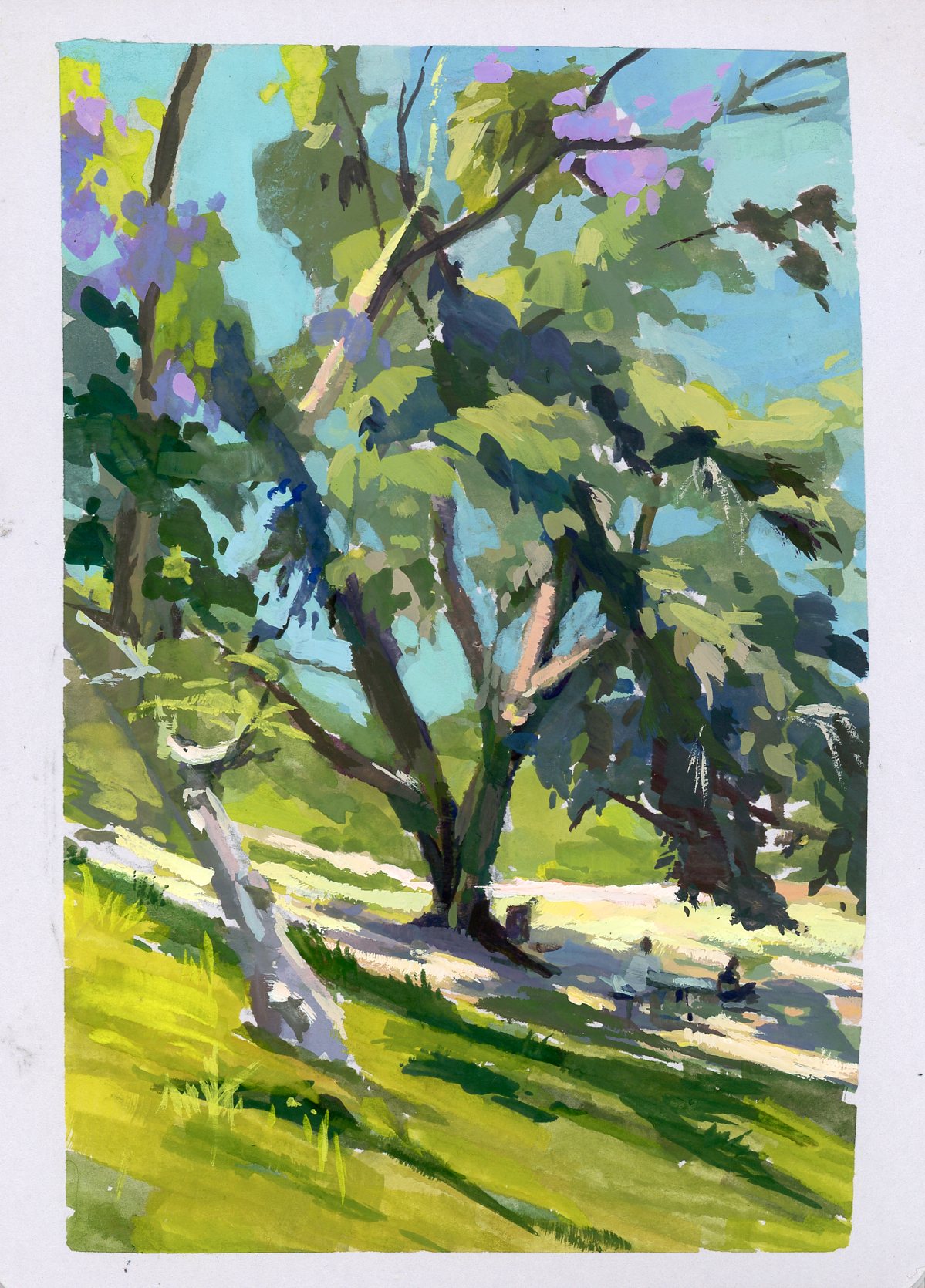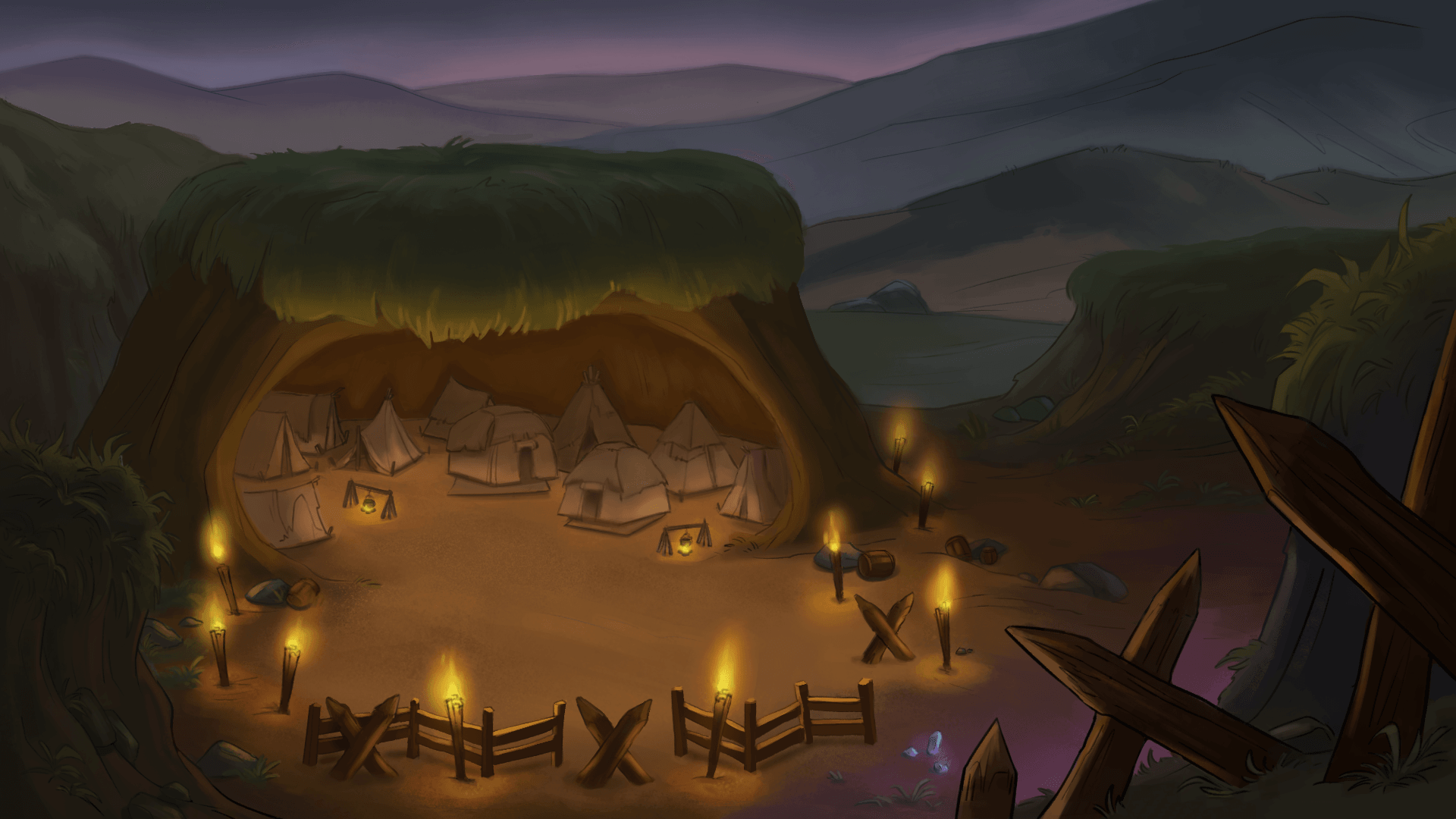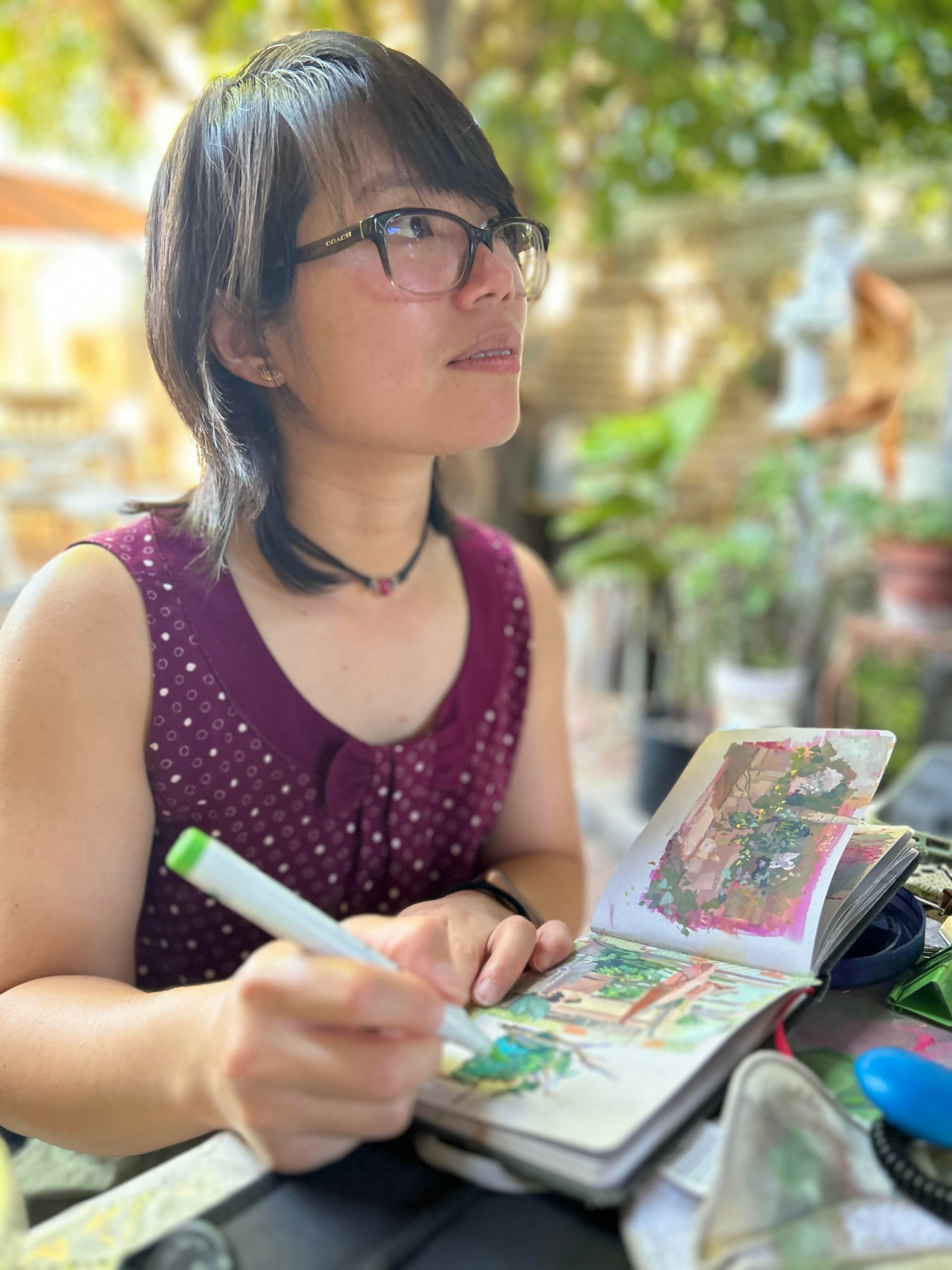We were lucky to catch up with Ylan Ha recently and have shared our conversation below.
Ylan, looking forward to hearing all of your stories today. Do you wish you had started sooner?
This topic really speaks to me, as I ask myself this question from time to time—even now. For those who don’t know, I started my creative career later in life. I was 26 and working as a quality analyst at a biopharmaceutical company. The pay was decent, and the work provided a good mental challenge. However, one thing was missing from my career equation: passion. I just couldn’t see myself working in the biotechnology field for the rest of my life, and I felt the need to search for that missing puzzle piece. With encouragement from my partner, friends, and art heroes, I went back to school and took art classes to build my fundamentals and start my creative career.
Now, as I approach my mid-thirties, I’ve worked on an indie game and am currently employed at an indie animation studio. Still, I often find myself looking back at my journey and asking, “What if I had started my creative career earlier?” What if I had successfully convinced my parents to let me switch my major from biology to animation when I was in college? What if I had taken art more seriously in high school instead of treating it as just a hobby? These questions sometimes plague my mind, and I envision a future where I could have been a younger, successful artist. If I had started earlier, maybe I could have attended a prestigious art school and landed my first art job right after graduation. I probably would’ve worked at a big studio and not worried so much about the industry’s future. From time to time, my anxiety makes me look back, questioning and regretting what I could have done to start sooner.
Then another voice pops up in my head: I am here now, and my focus should be on the present. Yes, I started late, but those experiences are what make me who I am. Different experiences contribute to your unique voice and creativity. I started late, but I also worked a full-time job while taking art classes, which gave me the discipline and grit to pursue my passion. Because I took the long way around, I met my loving partner, who constantly helps me stay on track but also gently advises me that it’s okay to take breaks. Along the way, I’ve met many creatives who want their voices to be heard—many who are fighting to save a medium threatened by corporate greed and by those who seek to undermine us.
Now that I’ve had the chance to write out these thoughts that have consumed me for a while, it feels like a weight has been lifted off my shoulders. My regrets still surface occasionally, but my support system reminds me to live in and appreciate the present. For those who regret starting late, know that you’re not alone. Surround yourself with people who make you feel fortunate to be alive and fulfill your dream.
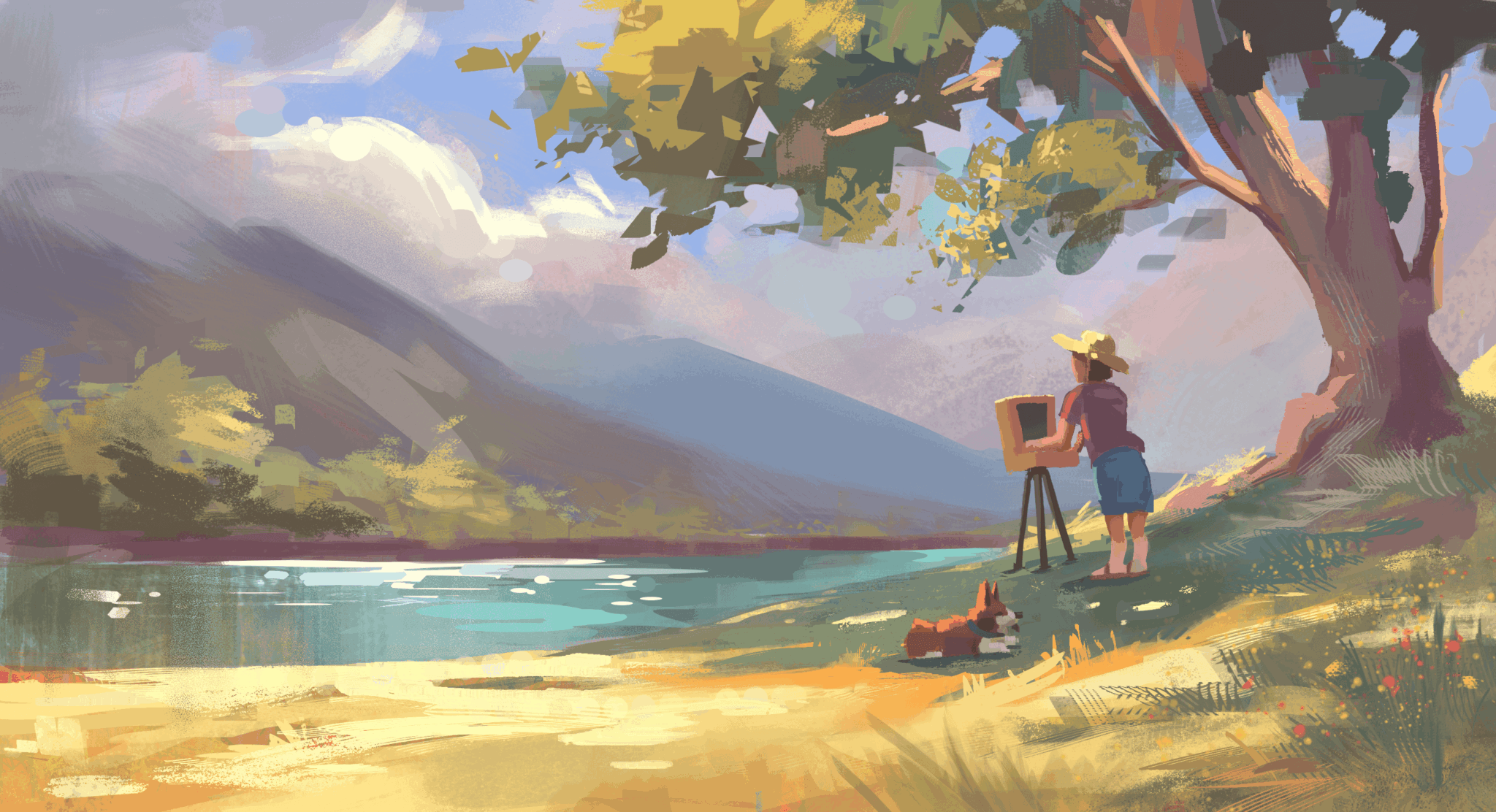
Awesome – so before we get into the rest of our questions, can you briefly introduce yourself to our readers.
I’ve always been one of those kids who was fascinated by both art and science. My Vietnamese parents wanted me to have a stable future, so they nudged me toward the latter, while art was pushed to the side as a hobby. After earning a B.A. in biology, I worked at a biopharmaceutical company until I hit a mid-career crisis at 26. Encouraged by my partner, I enrolled in art classes at my local community college while juggling a full-time job. In the spring of 2021, I finally took a leap of faith and transitioned to pursuing art full-time.
At a life drawing event, I reconnected with a former classmate, who pointed me in the direction of his professor, Kati Angelov. I enrolled in her internship class and had the opportunity to work for an indie video game company called Generic Lake Monster. It was my first art job, and I gained invaluable insights and experiences from my coworkers and leads. Facing tight deadlines, I learned how to produce high-quality work quickly and efficiently. My self-confidence grew as a result, preparing me for the next step in my journey. After the game’s release, some of my coworkers formed their own animation studio and invited me to join them as their lead background artist.
With that new position, I can proudly say that I’m living the dream. I’m collaborating with layout artists to produce a short animated film, and I’m planning to expand my services into other areas, such as concept art for card and board games, layouts for comics, and background designs for more animated shorts. I also love plein air painting and working traditionally in gouache and pastels, so I’m hoping to open a shop soon! Looking back on my journey, I’m most proud of my persistence and my ability to stay steadfast, pivoting when necessary to sustain my career.
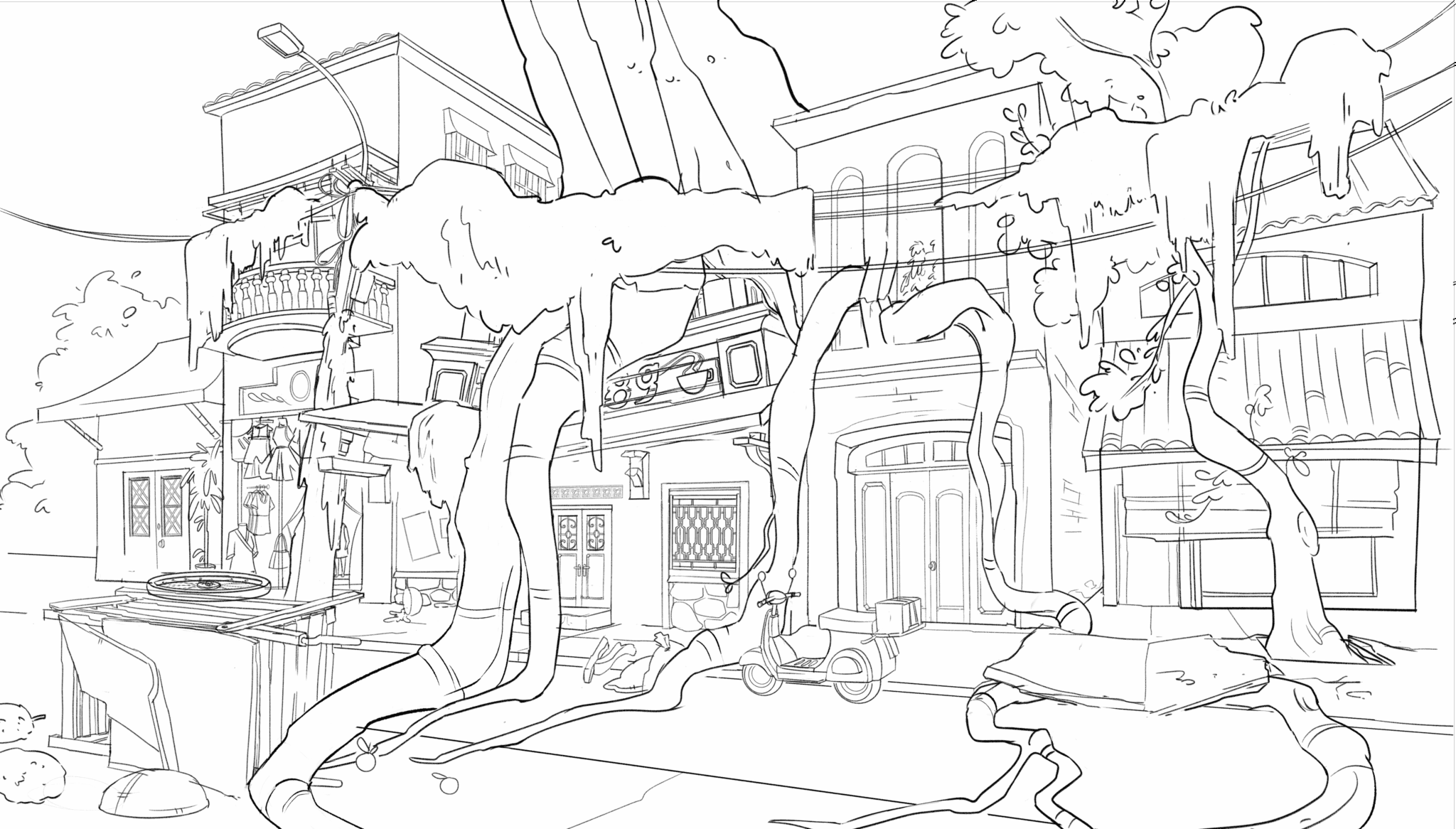
What’s the most rewarding aspect of being a creative in your experience?
The most rewarding aspect for me is the entire creative process. In the beginning, it’s like the “mad scientist” phase, where I’m completely immersed in my work, with textbooks (art books, in this case) scattered across my desk. When the office environment isn’t working, I change my surroundings—taking a field trip to a café or an open public space to seek inspiration. As a background designer, research and understanding that research are major components of worldbuilding for me. I take my time exploring during this stage because it’s where I have the most fun. There’s something liberating about being able to play and solve creative problems at the same time. Sometimes, a project requires frequent communication with the client, and it’s satisfying when both parties reach a consensus on a design and its intended purpose. Once I solve a client’s problem, I’m always eager to move on to the next challenge.
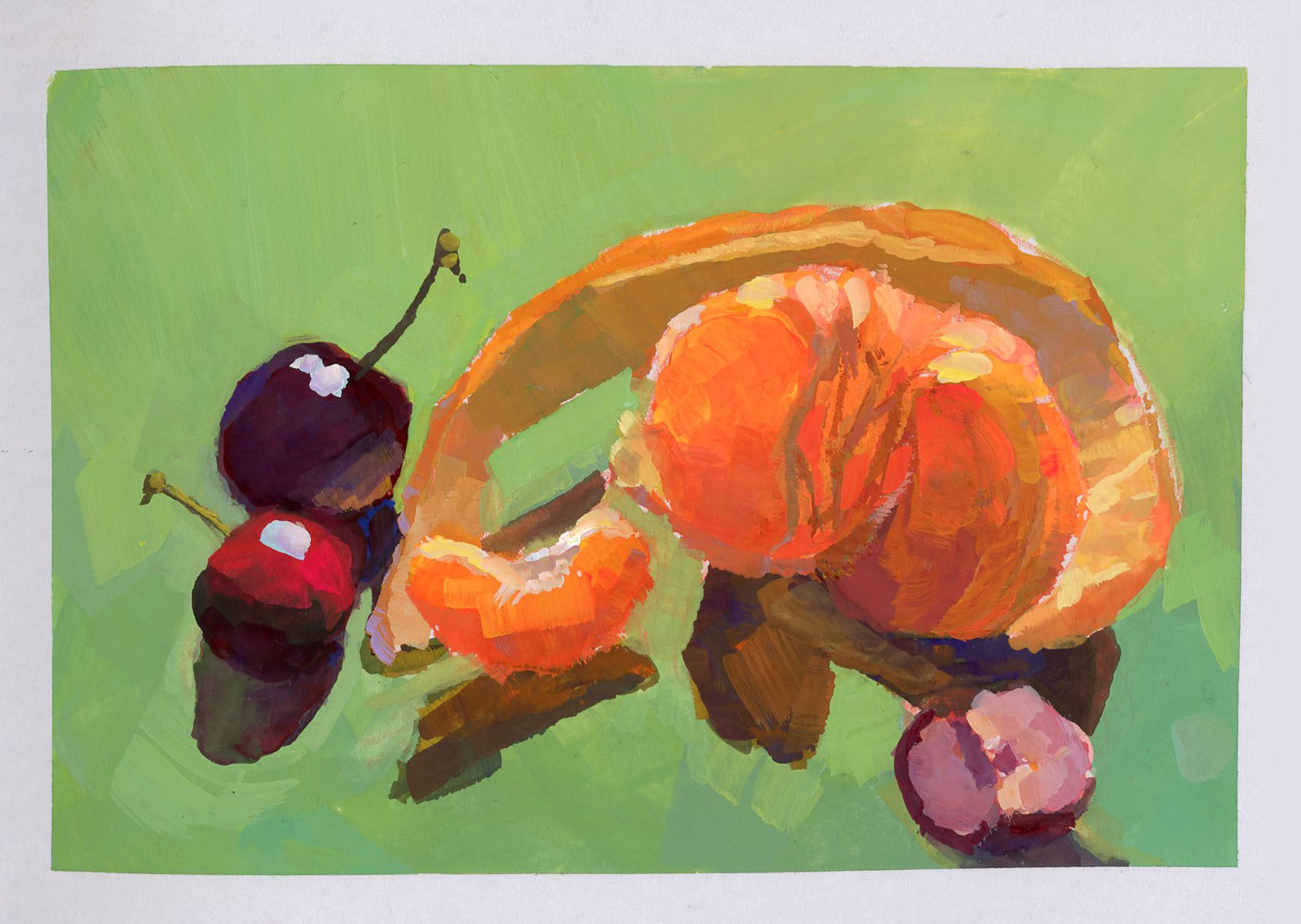
Is there something you think non-creatives will struggle to understand about your journey as a creative? Maybe you can provide some insight – you never know who might benefit from the enlightenment.
My answer lies within the question’s wording itself. I think many non-creatives don’t realize the time and dedication we put into our craft. They believe we can magically create masterpieces in the blink of an eye. I want them to understand that it’s truly a journey. Behind every “finished” drawing, there are dozens of sketches that were rejected before the final one. Behind every project, there’s an emotional rollercoaster where the artist oscillates between “I don’t know what I’m doing” and “Yes, I am on the right track” for hours on end.
I remember when a potential client asked me the price for a private commission. When they asked why after I told them, I pulled out all the work I had done for one project: the research, thumbnails, value studies, color compositions, rough sketches, and finally, the finished piece. “Ah, don’t forget!” I quipped, “Between these stages, the client likes to change their mind and ask for edits, so we have to account for that too.”
When I finished explaining everything, they stared at me, dumbfounded, as if I were presenting a new case study. Then they suddenly had a look of realization, and I knew I’d done my job. That’s why I get excited when someone—particularly a non-creative—curiously asks questions about art and related fields. It’s my chance to explain what we artists actually do for a living, and their newfound appreciation for the craft makes all my efforts feel worthwhile. Before passing judgment or making assumptions, please ask me or any artist if you’re genuinely interested in what we do. Like others who are passionate about their craft, we’d be delighted to share our stories!
Contact Info:
- Website: https://ylanha.myportfolio.com/
- Instagram: https://www.instagram.com/ylanhaha_artist/
- Linkedin: https://linkedin.com/in/ylanha
